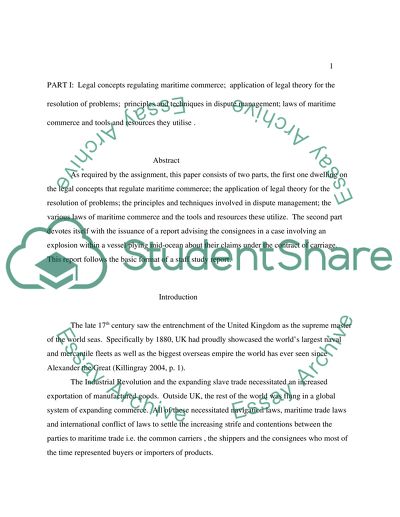Cite this document
(“Maritime Commerce Essay Example | Topics and Well Written Essays - 2750 words”, n.d.)
Retrieved from https://studentshare.org/law/1513618-maritime-commerce
Retrieved from https://studentshare.org/law/1513618-maritime-commerce
(Maritime Commerce Essay Example | Topics and Well Written Essays - 2750 Words)
https://studentshare.org/law/1513618-maritime-commerce.
https://studentshare.org/law/1513618-maritime-commerce.
“Maritime Commerce Essay Example | Topics and Well Written Essays - 2750 Words”, n.d. https://studentshare.org/law/1513618-maritime-commerce.


